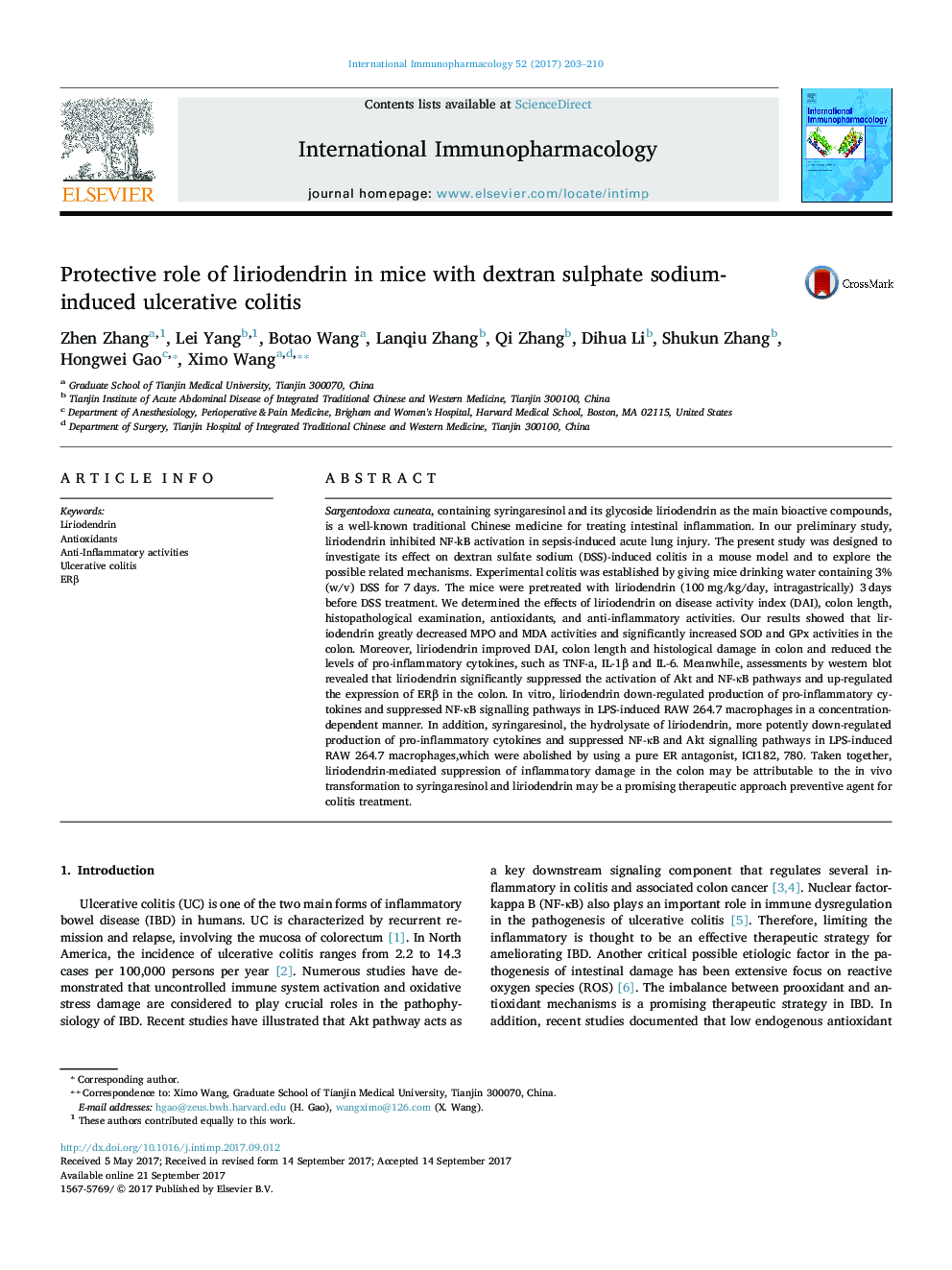| کد مقاله | کد نشریه | سال انتشار | مقاله انگلیسی | نسخه تمام متن |
|---|---|---|---|---|
| 5555262 | 1559738 | 2017 | 8 صفحه PDF | دانلود رایگان |
- Liriodendrin was purified from a well-known traditional Chinese medicine for treating abdominal inflammation.
- The protective effect of liriodendrin on the ulcerative colitis was investigated for the first time.
- We revealed a novel mechanism underlying liriodendrin's anti-inflammatory and antioxidant effects.
Sargentodoxa cuneata, containing syringaresinol and its glycoside liriodendrin as the main bioactive compounds, is a well-known traditional Chinese medicine for treating intestinal inflammation. In our preliminary study, liriodendrin inhibited NF-kB activation in sepsis-induced acute lung injury. The present study was designed to investigate its effect on dextran sulfate sodium (DSS)-induced colitis in a mouse model and to explore the possible related mechanisms. Experimental colitis was established by giving mice drinking water containing 3% (w/v) DSS for 7 days. The mice were pretreated with liriodendrin (100 mg/kg/day, intragastrically) 3 days before DSS treatment. We determined the effects of liriodendrin on disease activity index (DAI), colon length, histopathological examination, antioxidants, and anti-inflammatory activities. Our results showed that liriodendrin greatly decreased MPO and MDA activities and significantly increased SOD and GPx activities in the colon. Moreover, liriodendrin improved DAI, colon length and histological damage in colon and reduced the levels of pro-inflammatory cytokines, such as TNF-a, IL-1β and IL-6. Meanwhile, assessments by western blot revealed that liriodendrin significantly suppressed the activation of Akt and NF-κB pathways and up-regulated the expression of ERβ in the colon. In vitro, liriodendrin down-regulated production of pro-inflammatory cytokines and suppressed NF-κB signalling pathways in LPS-induced RAW 264.7 macrophages in a concentration-dependent manner. In addition, syringaresinol, the hydrolysate of liriodendrin, more potently down-regulated production of pro-inflammatory cytokines and suppressed NF-κB and Akt signalling pathways in LPS-induced RAW 264.7 macrophages,which were abolished by using a pure ER antagonist, ICI182, 780. Taken together, liriodendrin-mediated suppression of inflammatory damage in the colon may be attributable to the in vivo transformation to syringaresinol and liriodendrin may be a promising therapeutic approach preventive agent for colitis treatment.
Journal: International Immunopharmacology - Volume 52, November 2017, Pages 203-210
